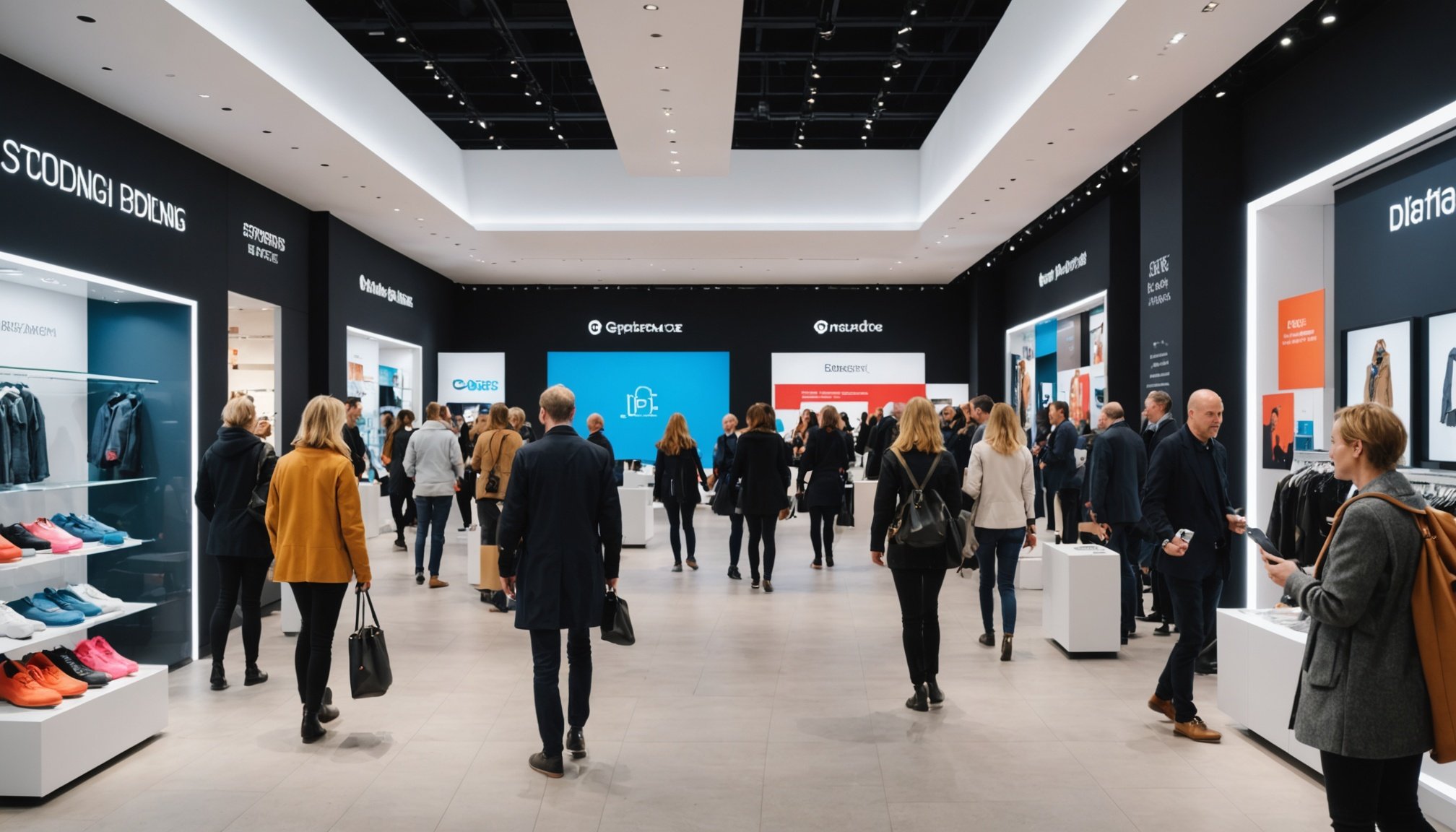Overview of Innovations in UK Retail
The UK retail landscape is undergoing significant transformation, driven by the demand for innovation to address the ever-changing consumer needs. With the fast pace of technological advancement, the industry is embracing a variety of retail innovations to stay relevant. Understanding the current and emerging UK retail trends is essential for strategic planning, ensuring businesses can adapt and thrive in this dynamic market.
Key technologies, such as Artificial Intelligence, Internet of Things (IoT), and blockchain, are reshaping the industry. These innovations are not just transforming the operational aspects but also enhancing the shopping experience for customers. Predictive analytics, personalised marketing, and automated services are examples of how technology is actively being integrated into the retail fabric.
Also to discover : How do sustainable practices drive success for uk businesses?
For companies aiming to secure their future in the competitive retail environment, embracing the future of retail is fundamental. Strategic investment in innovation facilitates improved operational efficiencies, customer satisfaction, and long-term growth. By keeping abreast of trends and proactively implementing new technologies, retailers can ensure they not only meet but exceed consumer expectations. This strategic foresight enables businesses to seize opportunities and overcome challenges, ensuring robust and sustainable growth in the vibrant UK retail sector.
Artificial Intelligence in Retail
Harnessing AI in retail has revolutionised the consumer shopping experience, making it more personalized and efficient. Notably, AI-driven personalization has enabled retailers to offer bespoke recommendations through smart retail technology, significantly enhancing customer satisfaction. For instance, machine learning applications analyse browsing behavior to tailor content, providing a curated experience unique to each shopper. As AI evolves, the precision of these recommendations is expected to improve, further cementing its role in retail.
Also read : How can uk companies strengthen their cybersecurity defenses? essential strategies revealed
AI-Driven Personalization
When discussing AI-driven personalization, its impact on the shopper’s journey cannot be overstated. Retailers leverage data to create experiences that resonate personally with customers. Success stories, like ASOS’s fit prediction tools, illustrate AI’s potential to transform mundane shopping into an engaging experience. The future sees further sophistication in AI, with more nuanced and refined personalization.
Inventory Management and Automation
AI’s role in inventory management and automation is crucial for enhancing supply chain efficiency. Through predictive analytics, AI anticipates demand, minimizing waste and optimizing stock levels. Marks & Spencer, for example, effectively uses AI to cut down surplus stocks. This not only saves costs but also aligns with sustainable practices, fulfilling modern consumer expectations for eco-conscious retail.
Automation and Robotics in Retail
Incorporating retail automation and robotics in retail offers numerous advantages, especially in achieving operational efficiency. As technology advances, the retail sector is increasingly adopting automated systems to streamline processes and meet consumer demands efficiently. Automated checkout solutions have gained traction, with self-checkout systems becoming a staple in many UK retailers, providing convenience and reducing queue times. While consumer acceptance varies, successful implementation often hinges on user-friendly interfaces and effective support.
Moreover, the use of robotics for inventory management significantly enhances stock accuracy and speed. Various robots, from automated shelf scanners to AI-powered sorting machines, demonstrate how robotics can revolutionise inventory processes. As retailers reap efficiency benefits, the future landscape of retail logistics appears promising with more sophisticated robotic deployments.
Additionally, delivery drones and robots are emerging as novel solutions for last-mile delivery challenges, aiming to boost customer satisfaction and cost efficiency. However, these innovations face regulatory challenges in the UK, requiring adaptations and compliance to ensure viable implementation. Despite hurdles, exploring these technologies presents both opportunities and challenges for retailers aiming to lead in a technologically evolving marketplace.
Sustainability Initiatives in Retail
The rising consumer demand for sustainable retail has prompted UK retailers to adopt innovative eco-friendly practices. These practices include reducing carbon footprints through energy-efficient operations and offering green technology solutions across supply chains. In doing so, retailers not only cater to environmentally conscious customers but also realize substantial cost savings.
Leading the charge, several retailers have launched initiatives like recycled packaging and reusable product offerings. Such eco-initiatives foster brand loyalty by aligning their values with their customers’ sustainability-focused perspectives, creating long-term relationships.
Green technology advancements, such as solar-powered facilities and energy-efficient lighting, offer dual benefits: they lessen environmental impact and reduce operating costs, offering a win-win for both retailers and consumers. Furthermore, retailers are increasingly participating in carbon offset programs to further their sustainability goals.
Additionally, the implementation of digital receipts and paperless transactions is gaining traction as a part of broader eco-friendly practices. This transition reduces waste and appeals to digital-savvy consumers looking for convenience and sustainability.
By embedding sustainable retail initiatives into their core strategies, retailers are not only addressing today’s environmental concerns but also securing their competitive edge in the future. Embracing sustainability, therefore, becomes crucial for cultivating consumer trust and enhancing overall market resilience.
Enhancing Customer Experience
In today’s retail environment, customer experience in retail plays a pivotal role in differentiating brands. Retailers are adopting experiential retail strategies to engage consumers effectively. This evolution involves blending traditional and digital practices to create a cohesive shopping experience, often referred to as omnichannel shopping. By seamlessly integrating online and offline experiences, retailers can cater to diverse consumer preferences, ultimately boosting satisfaction and loyalty.
For instance, John Lewis exemplifies successful omnichannel strategies by allowing customers to shop online with the option to pick up in-store. This convenience enhances the shopping journey, thereby encouraging repeat business. However, implementing such strategies is not devoid of challenges. Retailers must navigate technological investments and staff training to ensure smooth operation across all channels.
Furthermore, the use of Virtual and Augmented Reality (VR/AR) adds another layer of interaction, allowing consumers to visualize products in dynamic ways. Notable examples include IKEA’s AR app, which helps customers envision furniture in their homes before purchasing. Retailers using immersive technology gain an edge by offering innovative experiences that resonate with tech-savvy shoppers.
Beyond AI, personalization involves tailoring in-store experiences through data analytics. By understanding customer preferences, retailers can build loyalty and enhance engagement through services uniquely suited to each consumer.
Predictions for Retail Technology Innovations
The retail industry is bracing for significant changes as future retail technology evolves. Expert predictions indicate that next-generation innovations will transform the way brands interact with consumers, bringing about unprecedented levels of engagement and convenience. Retailers must stay attuned to consumer behaviour shifts, particularly as preferences lean towards more integrated and personalised shopping experiences.
Anticipated tech trends include enhanced artificial intelligence applications, where machine learning will become more adept at understanding and predicting consumer needs, further refining personalisation strategies. The integration of augmented reality is also expected to continue its rise, providing immersive experiences that help shoppers make informed decisions, boosting engagement and satisfaction.
To remain competitive and relevant, retailers should embrace a flexible approach, incorporating advancements like AI and AR into their strategies. Moreover, it is crucial to maintain a robust infrastructure that supports innovations, ensuring seamless implementation and operation.
By understanding and anticipating these tech trends, retailers can better position themselves to capitalise on emerging opportunities while effectively navigating potential challenges. Staying ahead of the curve not only demands embracing change but also requires a commitment to strategic planning and continuous adaptation in a rapidly evolving landscape.
Chatbots and Customer Service
Chatbots have revolutionised customer service by providing efficient, round-the-clock assistance, effectively enhancing customer engagement. Acting as the first point of contact, chatbots address common queries, offering solutions almost instantaneously. This not only improves the customer’s experience but also reduces the workload on human agents.
With the ability to operate 24/7, chatbots serve as a reliable support system, meeting consumer expectations for immediacy and convenience. Their effectiveness is further amplified by machine learning, allowing them to handle more complex issues over time.
Major UK retailers have successfully integrated chatbots into their service strategies. Marks & Spencer, for instance, uses chatbots to streamline customer interactions, providing prompt assistance on order tracking and product inquiries. By doing so, they maintain high standards of service while reducing operational costs.
However, challenges do exist. It’s essential to ensure a seamless transition from chatbot to human operator when needed, to prevent customer frustration. Training AI systems for emotional intelligence can also enhance interaction quality.
In summary, chatbots significantly enhance operational efficiency and customer satisfaction. As technology continues to evolve, these tools will likely become more sophisticated, offering retailers even greater opportunities for improving service delivery.

